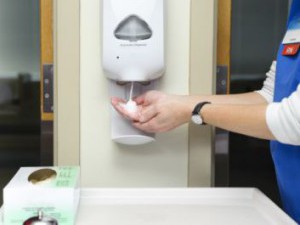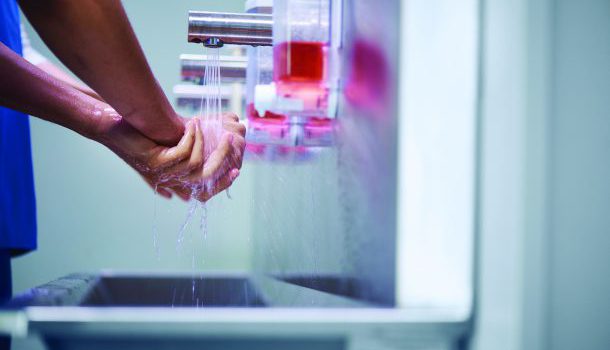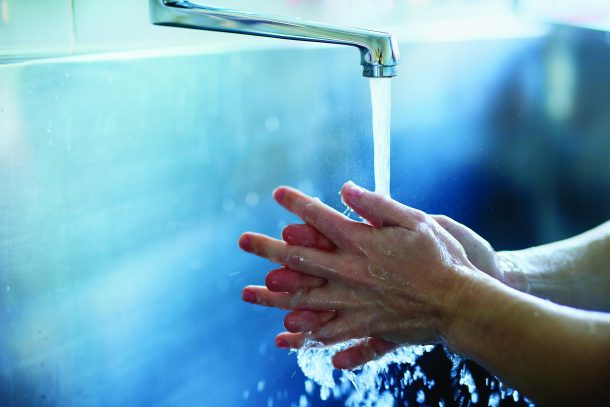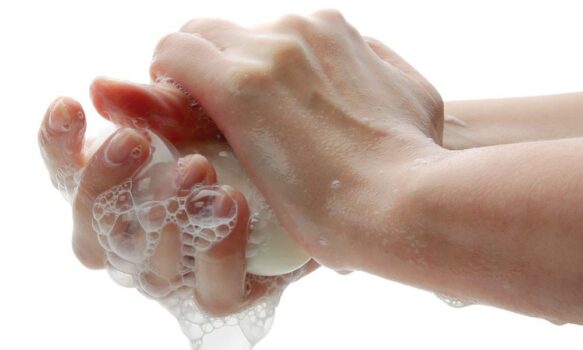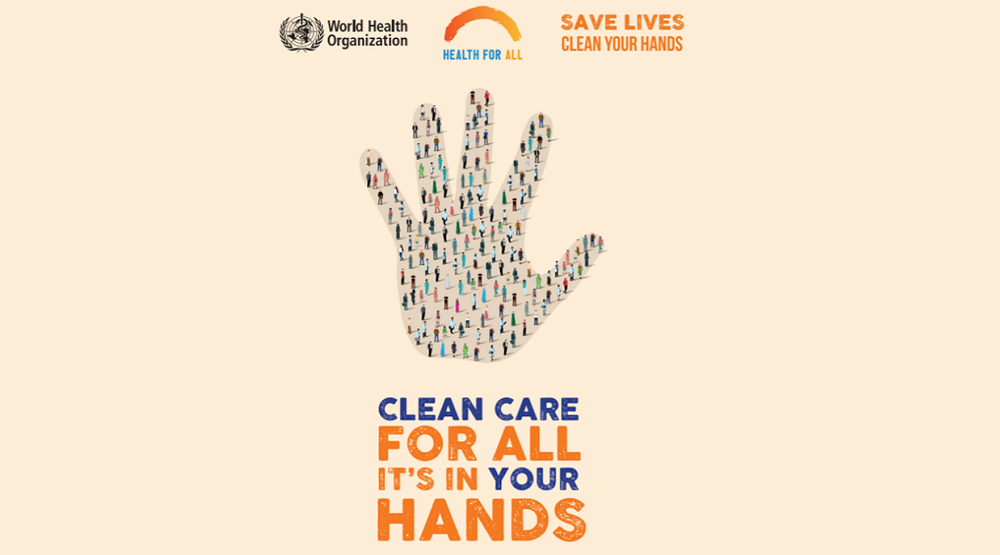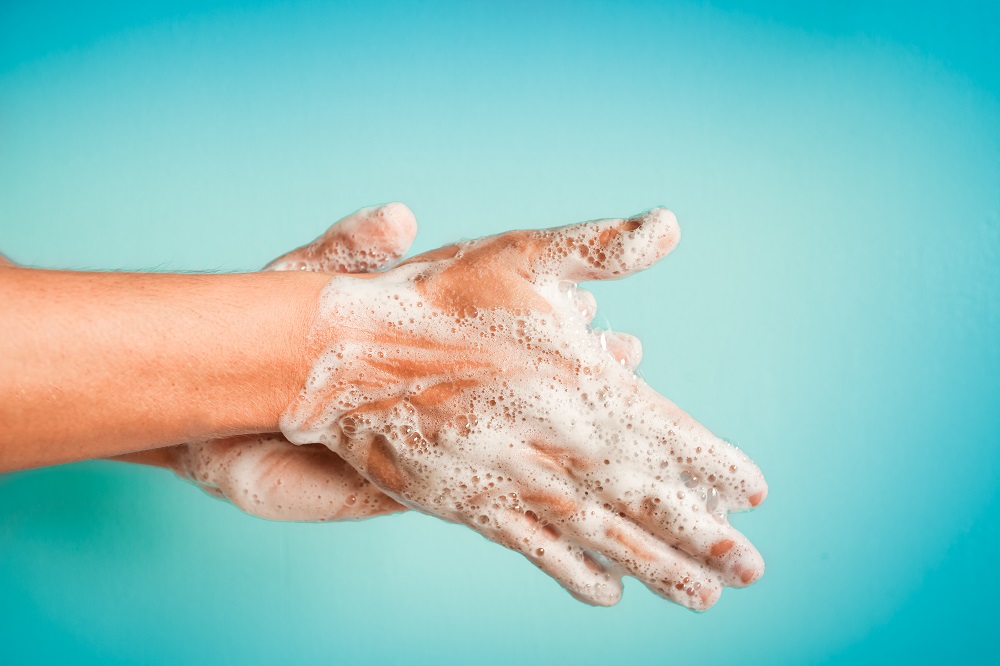
Cleaning contractors and suppliers are responding to a huge spike in demand for their services in the wake of the Covid-19 outbreak, with hand hygiene being firmly on the agenda. Cameron Cooper reports.
If there is any silver lining to the coronavirus crisis, it is that the cleaning industry’s pleas in the past for improved hand hygiene are now being heard. Loud and clear.
Retailers, offices and other facilities are scrambling for alcohol-based hand rubs; governments are promoting best-practice hygiene standards; and, in a sign of the times, people who once just waved their hands under taps now know that they need to wash their hands with soap and water for at least 20 seconds.
In short, fallout from the coronavirus has been a wakeup call for society that will, hopefully, lead to long-term change in behaviours around hand hygiene.
The shift represents an important breakthrough for cleaning contractor work, according to Damien Owens, director of Owens Management Services, a Queensland cleaning services business.
He welcomes the fact cleaning companies with stringent standards and appropriate certification are gaining more recognition for “all that extra hard work we do”.
Bridget Gardner, a high-performance cleaning specialist and director of HPC Solutions, is also encouraged hand hygiene is now on the radar but says there also needs to be an appreciation that cleaners are providing an “essential health service”, not just a cleaning service.
“We rightly talk about the doctors and nurses being on the front line, but the cleaners are right out there every single night facing a level of risk from COVID-19 that is far higher than the general public.”
Gardner has released a new guide, called Guide to Cleaning for COVID -19, that gives cleaning companies a comprehensive rundown on government advice and best practice.
She emphasises the importance of cleaners taking no chances – protecting clients as well as themselves – given that they are potentially high transmitters of viruses.
That means washing or sanitising their hands between every room. She also stresses the importance of not contaminating their own cars and homes after an infectious clean, by washing hands for two minutes before exiting a site and washing their clothes and other potentially contaminated objects after every shift.
“Hand hygiene – I’m just calling it personal hygiene now. The whole body is a potential carrier of this virus.”
Sub: High demand
With the advent of the pandemic and the repeated media campaigns calling for people to properly wash their hands, manufacturers of hand sanitisers have been swamped with demand.
At his Krystalshield manufacturing base in Cambelltown, NSW, managing director Robert Diaz, has been frustrated at the lack of availability of alcohol to make products such as alcohol-based hand sanitisers as a result of Covid-19.
“Alcohol is next to impossible to get right now,” says Diaz, who says suppliers have been unable to meet promised deliveries of alcohol.
Undeterred, Krystalshield has ramped up manufacturing of its non-alcohol Eco-Shield hand-hygiene product.
The anti-bacterial hand sanitiser is ideal for those with sensitive skin who work in the food, hotel, hospital and office environments.
Diaz is a strong advocate of alcohol-based products, but says there are other viable alternatives in the case of alcohol shortages.
“Alcohol is not the only thing available that will sanitise your hands,” Diaz says. “I think the non-alcohol versions can be safer for people to use, especially in schools and for people who are using it all the time because it doesn’t dry out your hands.”
Aside from a shortage of some hand rubs, he says another pressure point is the lack of paper hand towels in many commercial and business premises.
“For sure, people are washing their hands all the time now, but everyone is out of hand towels.”
Surface contamination
Amid the focus on frequent handwashing, the risk with surfaces in offices, restaurants, classrooms, bathrooms and other high-traffic areas may not be fully understood.
Hands can become contaminated time and time again from dirty surfaces even if hand rubs and soaps are being used.
Owens says the issue highlights the difference between merely cleaning and disinfecting surfaces as opposed to fully sanitising them.
“You really need to help educate your clients about the differences to assist in the reduction of any spread of germs or viruses.”
Kitchens and cafes are especially vulnerable given the predominance of stainless steel, a medium that can hold viruses longer than many other surfaces. They should therefore be degreased, disinfected and then sanitised; Owens says.
“Stainless steel is our hotspot.”
So how can companies and their cleaners improve their hand hygiene? For a start, they should use alcohol-based hand rubs that are bought from ethical suppliers.
In the absence of such rubs, there are alternatives that still comply with Therapeutic Goods Administration (TGA) guidelines.
Companies should also adopt the ‘standard precautions’ for infection control and prevention, including hand hygiene, cleaning and disinfection and the use of the right personal protective equipment.
Gardner says in any discussion about hand hygiene, proper use of gloves must be front and centre, including different approaches to preventative cleans and decontamination cleans.
With the former, companies should still teach good hand-hygiene practices by getting cleaners to “treat their gloves like a hand”.
This includes washing hands properly before putting on gloves, while wearing them or applying alcohol sanitisers directly on to the gloves if compatible.
During decontamination cleans, though, gloves should be frequently replaced. “While there are no rules with regard to the number of touchpoints per glove, or application of sanitiser, certainly cleaners shouldn’t leave a room or area without replacing their gloves.”
A concerning issue, though, Gardner says, is a looming shortage of gloves.
“Changing gloves after every room has been cleaned could mean we’ll run out of supplies, and that could pose a really serious health risk to cleaners.”
Owens notes that, as a cleaning contractor, he constantly travels from site to site, opening doors in areas that may have been exposed to viruses and then hopping back into his car and touching the steering wheel.
“So, in the car, I permanent have a hand sanitiser, and I use hand sanitisers provided in any businesses I walk into. It’s really about ensuring the accessibility of sanitisers and wipes.”
Positive impact
With the coronavirus showing no signs of dissipating, the pressure on hand-sanitiser manufacturers is set to continue.
At Krystalshield, Diaz has hired additional temporary staff to meet demand following Covid-19, taking factory numbers from four to 10. “The world is all doom and gloom,” he says.
“But we’re actually thriving. I don’t like the fact that we’re thriving on other people’s fear, but at least I know I’m doing something that’s helping people reduce their fear.”
Tips for best-practice hand hygiene
- Wash hands if they are visibly soiled, using soap and water for at least 20 seconds.
- Ramp up hand hygiene by using alcohol-based hand rubs or alternative high-efficacy hand sanitisers.
- Check the label on alcohol-based rubs to ensure you use the appropriate amount.
- Put tissues in the bin straight after use.
- Increase the frequency of cleaning high-touch point surfaces such as door handles and workstations, and in bathrooms and kitchens.
- Use gloves to protect cleaners from the repeated use of harsh chemicals, but dispose of the gloves regularly to avoid contamination.
- Keep frontline cleaners safe with face masks and through ongoing hand-hygiene education.
This article first appeared in the May/June issue of INCLEAN magazine
Comment below to have your say on this story.
If you have a news story or tip-off, get in touch at info@3.106.117.80.
Sign up to INCLEAN’s newsletter.
